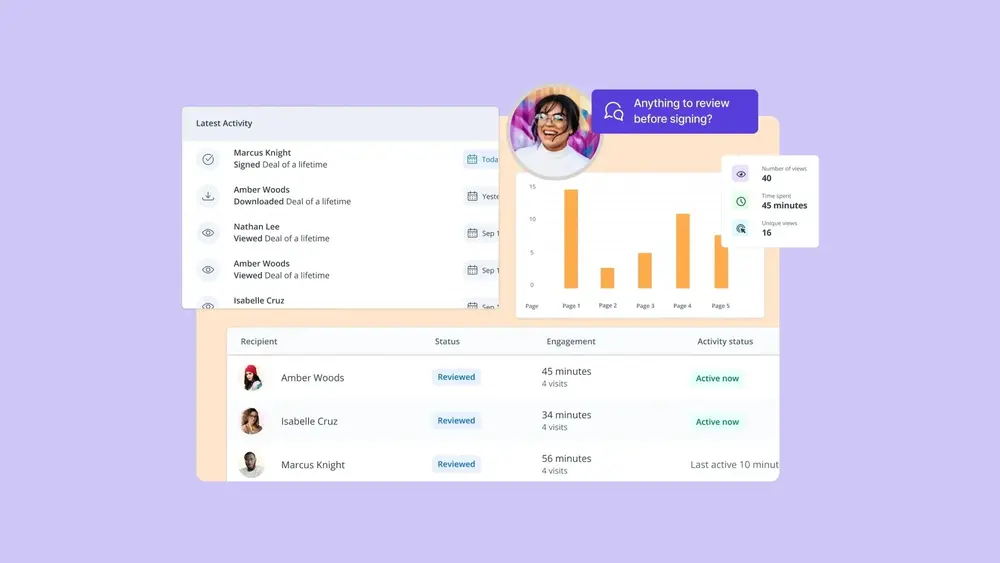In today’s competitive business environment, crafting compelling proposals can be the difference between securing a new client and missing out on a valuable opportunity. Proposal management software enables businesses to streamline the process, ensuring an organized and efficient approach to proposal creation. Such software stands as a key player in successful business operations, helping teams collaborate effectively, manage content with ease, and track the lifecycle of each proposal. If you’re in the market for a solution that enhances your proposal process, understanding the crucial features to look for can make all the difference. Below, we delve into the essential elements that define state-of-the-art proposal management software.
At its core, proposal management software is designed to facilitate the organization, writing, and dispatch of business proposals. It often comes with a suite of tools that aid in the collaborative creation of tailored and persuasive documents, aimed at winning over potential clients. Altogether, this software aims to boost productivity by automating routine tasks and centralize proposal-related documents and data.
The ideal proposal management tool should provide a structured framework that guides you through the planning, drafting, and revision stages of proposal creation. It typically allows users to create templates, which can be customized for different clients or projects, ushering in a consistent brand presentation and reducing redundant work. Moreover, the software enables the reuse of pre-approved content, bringing efficiency and accuracy to the process.
More advanced systems integrate with other business applications, such as Customer Relationship Management (CRM) tools or project management platforms, for an end-to-end business process. Solutions like the top proposal management software on the market often feature analytics and reporting tools that help teams understand their success rates and identify improvements for future proposals.
For a proposal management software to be effective, it must integrate smoothly with existing business systems. This can include CRM software, which houses critical client data, or enterprise resource planning (ERP) systems that manage a company’s core business processes. Seamless integration helps in maintaining data consistency and accuracy, which is pivotal for crafting personalized and error-free proposals.
When proposal data automatically synchronizes with other critical business systems, efficiency is naturally enhanced. There’s no need to manually transfer data between platforms, minimizing the risk of human error and saving significant time. This fluidity in data movement is conducive to a more agile response to potential clients, keeping you one step ahead of the competition.
A “one size fits all” approach doesn’t work in the world of proposal management. Your software should enable a high degree of customization, accommodating the unique branding, services, and value propositions of your organization. Options to customize templates, content libraries, and proposal aesthetics are vital for creating documents that resonate with each unique audience.
More than just visual appeal, proposal management software needs to offer a user-friendly design that empowers users to navigate and use its features with minimal training. A steep learning curve can deter team members from utilizing the software to its full potential, thereby negating any potential productivity gains. Thus, accessibility and ease of use are just as important as the range of features available.
Data-driven decision-making is vital in business, and proposal management software is no exception. With robust analytics and reporting features, businesses can delve into the performance of their proposals, understand trends, and identify which strategies are yielding the best results. These insights can inform future proposals, driving continuous improvement in both content and process.
Tracking metrics such as proposal acceptance rates, average time to close, and client feedback are integral for assessing the effectiveness of your proposal strategy. Analytics can highlight strengths to be capitalized on and weaknesses to be addressed. They can also gauge the performance of individual team members, providing opportunities for further training or process adjustment.
Overall, the optimal proposal management software should be a multi-faceted tool that addresses the intricacies of proposal creation and management. The blend of integration capabilities, customization options, collaborative features, and insightful analytics form the backbone of an efficient and effective proposal process. When equipped with such a powerful software solution, businesses are well-positioned to craft proposals that capture attention and win contracts.
